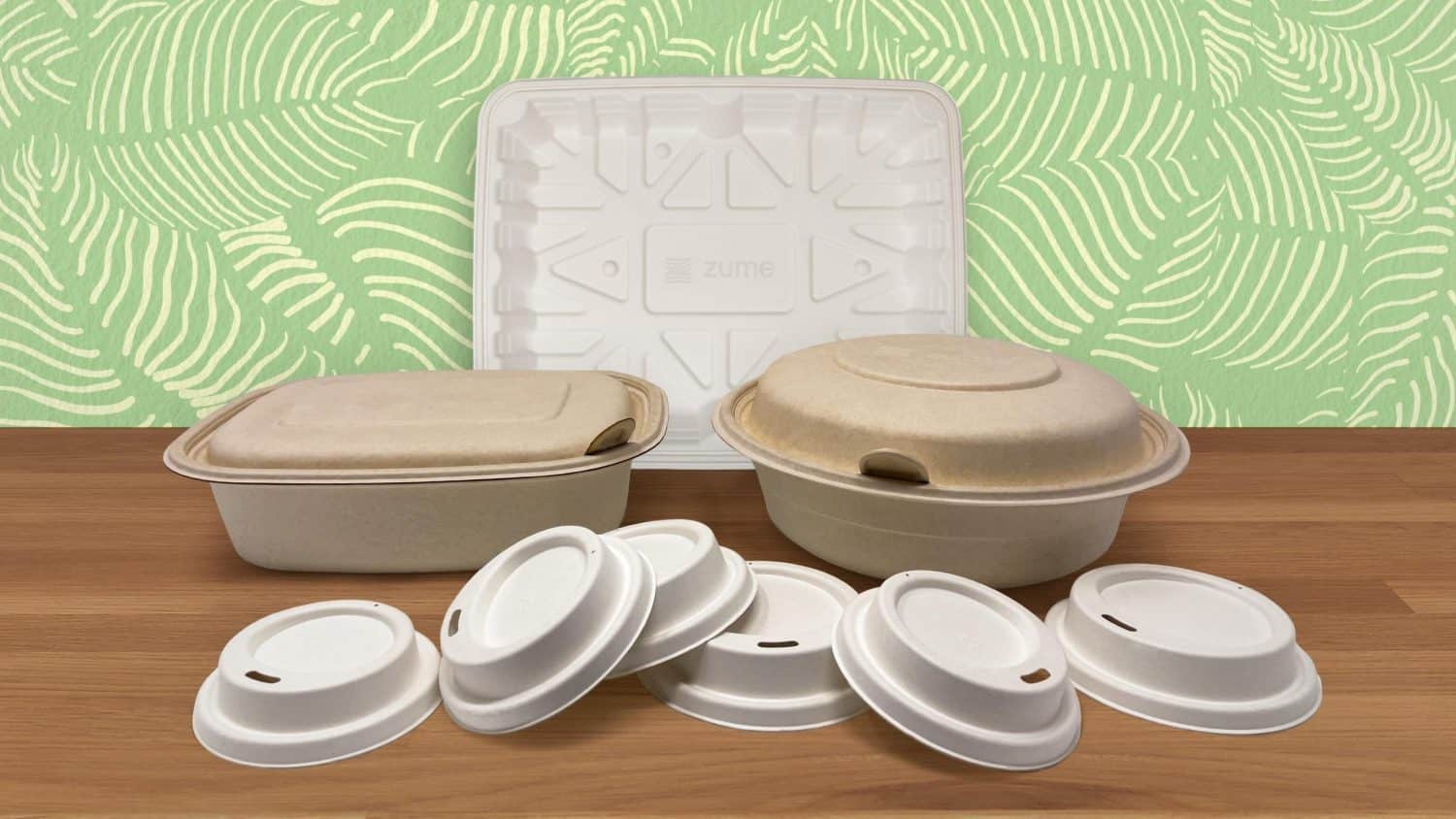A group of chemicals known as PFAS does a fine job when food needs to be packaged, resisting grease and water. But the so-called “forever chemicals” don’t break down in the environment and can leach from containers and move through soils, contaminating drinking water sources. Not very appetizing.
Manufacturers are phasing out the use of PFAS, short for per- and polyfluoroalkyl substances. Still, high levels of PFAS were recently found by Consumer Reports in food packaging from major fast-food restaurants and grocery chains.
So the timing is good for two U.S. companies, Zume and Solenis, who say they’re “doubling down” on an existing collaboration to speed the adoption of sustainable packaging in the global food industry. They’re introducing a comprehensive line of 100% PFAS-free molded fiber packaging, including cups, bowls, egg cartons and protein trays.
The free-from-harmful-chemicals packaging will roll out around May or June in the United States, produced at Zume headquarters in Camarillo, California, says Alex Garden, chairman and CEO.
“We do have plans to expand to our manufacturers internationally throughout 2022,” Garden says. “We have a growing number of global brands that will begin using our PFAS-free packaging, including one of the fastest-growing healthy food/salad chains that will start to use our bowls this summer.”
In August 2021, the two companies published an open-source recipe for replacing PFAS in food packaging, saying they want to accelerate the phase out of the chemicals.
“We continue to conduct fundamental work with our non-PFAS solution to better understand and optimize key factors such as fiber mix, fiber modification, chemistry formulation, chemistry application and process conditions,” says Larry Hutchinson, global market development manager for food packaging at Solenis.
“Knowledge and experience gained have significantly expanded oil and grease barrier performance to satisfy most foodservice needs with a commercialized, competitive, compostable solution.”
Drowning in Plastic
They might want to make a boat out of this PFAS-free molded fiber.
Globally, about 300 million tons of plastic waste are produced every year—nearly equivalent to the weight of the entire human population. It ends up polluting oceans and waterways or piling up in landfills. Microplastics, the remnants of plastic waste, have been found in human blood.
“Together with Solenis, we’re pioneering a solution,” Garden says.
“Our comprehensive line of PFAS-free molded-fiber packaging is made from fibers from materials like agricultural waste.
“The fibers used vary per manufacturing location but could be made from bagasse (sugarcane fiber), bamboo, wheat, straw and other organic fibers. By using agricultural waste and not burning it for disposal, we’re significantly reducing carbon emissions compared to the production and disposal of plastic and Styrofoam.
“Unlike plastic and Styrofoam, our plant-based packaging is also compostable and can be used to regenerate soil, creating a sustainable closed-loop system.”

Zume and Solenis also are working with global robotics leader ABB to automate production at the scale needed to serve global customers “and at a price that enables them to switch from plastic without disrupting manufacturing processes or their bottom line,” the CEO adds.
While other alternatives to PFAS-free food packaging exist, they haven’t been widely adopted, Garden says, because they either don’t meet end-user requirements, are too expensive, or aren’t available at the scale needed for widespread adoption.
Packaging 360 is a comprehensive knowledge sharing ecosystem for the Indian packaging industry. Our services include an online content platform to deliver news, insights and case studies; organising conferences seminars and customised training; Providing Bespoke Project Consulting, Market Research and Intelligence.







